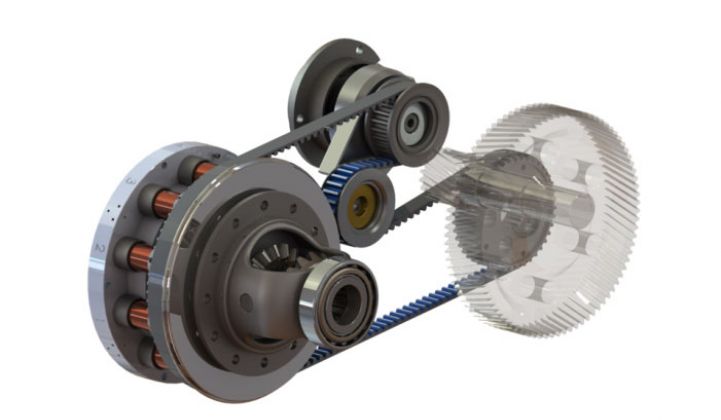There are millions of electric motors that use far more energy than they need to because they are oversized to provide enough torque for just one part of their job.
But that doesn’t mean the industrial motor market is ready for an efficiency overhaul just yet.
One company that was trying to bring innovation to some 75 million electric motors with a variable speed motor was Canadian startup inMotive. Companies that use motors said they’d be interested in the product, but only if it was already integrated into a trusted motor name they already knew.
The Toronto-based startup tested its prototype with one of the world’s 10 largest motor manufacturers, but motor manufacturers were hesitant to permanently alter production lines to take a chance on a new technology.
Instead of waiting for the industrial motor industry to embrace more radical change, inMotive has pivoted to another market for electric motors where innovation is more rampant: electric vehicles. Given what inMotive’s CEO Paul Bottero calls the "Tesla effect," there are many auto manufacturers looking at differentiated electric-vehicle options for the future.
To capitalize on the changes happening in the car industry, Bottero's company is now looking for an innovative auto manufacturing partner. Unlike their gas counterparts, electric vehicles do not have transmissions.
As electric vehicles become more mainstream, vehicle manufacturers will increasingly need to compete on look, feel, speed and acceleration -- just as conventional cars do -- while also vying for extended range.
Bottero said that a transmission designed specifically for an electric motor could provide a boost to many of those features, using a combination of mechanical, computer, electrical and control engineering for variable speeds. The startup claims it’s the least expensive option for an electric motor compared to other automatic transmissions.
Clutchless shifting could provide up to a 20 percent increase in range, so batteries could either be sized down or range could just be increased overall. The decrease in battery size would pay for the cost of the transmission, says Bottero.
Of course, as battery prices come down, the economics will change. For the luxury electric-vehicle market in particular, a transmission could potentially offer a more differentiated ride.
The move to electric vehicles earlier this year was a major shift for the five-year-old startup, but EV applications had always been a part of the long-term vision. Three years ago, Bottero envisioned everything from low-cost four-speed automatic transmissions for emerging markets to 16-speed vehicles for the luxury market.
The emerging markets could be one of the first applications, especially as inMotive tries to navigate many of the entrenched auto manufacturers in the U.S. that are difficult to break in to.
The Toronto-based startup has raised about $5 million to date in grants and seed funding, and is evaluating other funding opportunities after it secures a development partner, which it hopes to do this year.



